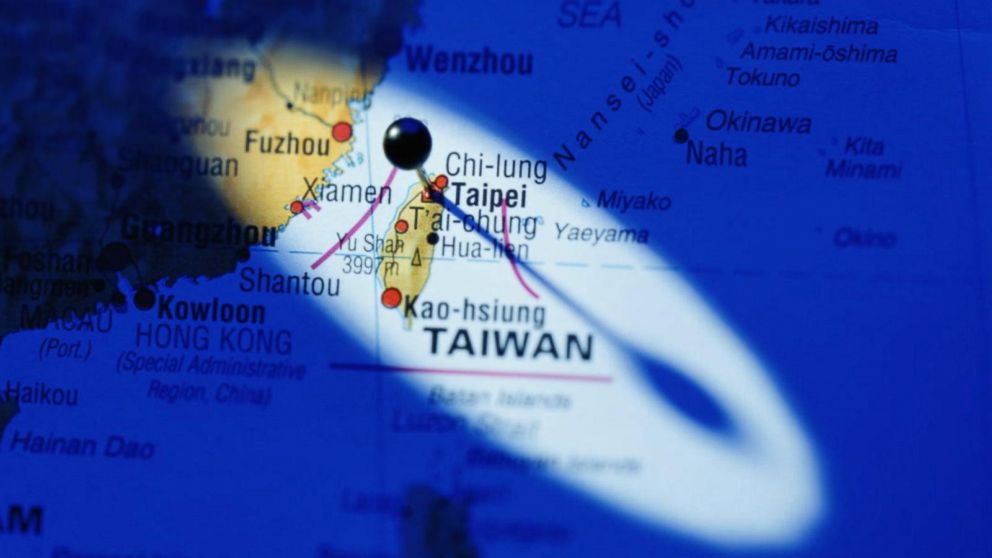
There are multiple signs in recent months that Beijing’s already evident impatience with Taiwan’s Democratic Progressive Party (DPP) government is growing worse. Chinese leaders have resumed, if not intensified, their campaign to isolate Taiwan diplomatically, including by weaning away the handful of governments that still have official relations with Taipei. The latest example was the successful effort, using both diplomatic and financial incentives, to get Panama to switch its diplomatic recognition from Taipei to Beijing. Other Taiwan partners also appear to be on China’s agenda.
When the more conciliatory Taiwanese leader Ma Ying Jeou was in office between 2008 and 2016, China appeared to put its longstanding effort to increase Taiwan’s diplomatic isolation on hold. That restraint was one component of a strategy to weaken the Taiwanese public’s sentiment in favor of maintaining the island’s de facto independence. The surge of economic agreements between the mainland and Taiwan during those years was another crucial element. More than 20 trade and investment pacts were concluded, and mainland tourists flocked to Taiwan.
Chinese leaders assumed that a patient strategy combined with burgeoning economic links across the Taiwan Strait would lead eventually to serious negotiations regarding political reunification. Beijing was even prepared to offer a status of enhanced autonomy to Taiwan—a degree of self-government greater than that given to Hong Kong when Britain returned that territory to China in 1997.
That strategy of patience and its underlying assumption that the growth of economic ties would gradually produce greater political ties collapsed in early 2016. The election of Tsai Ing-wen of the pro-independence DPP—and even more so, the DPP’s unprecedented landslide victory to win decisive control of Taiwan’s legislature—demonstrated the failure of Beijing’s approach. Relations between the mainland and Taiwan chilled rapidly.
China’s leaders are especially angry at Tsai’s refusal to endorse the so-called 1992 consensus, which asserts there is but one China, although the two sides might disagree about the specifics of that concept. Other actions by Tsai’s government, including the parliament’s commemoration of the 1989 Tiananmen Square massacre for the first time, and Taipei’s exploration of security cooperation with Japan, further inflamed Beijing.
Xi Jinping’s government severed the ongoing diplomatic dialogue with Taipei, which among other achievements, had led to a meeting between Xi and Ma during the final weeks of Ma’s administration. Such a summit between mainland and Taiwanese leaders had not taken place since the communist takeover of the mainland in 1949. Beijing’s statements about Tsai and her policies have grown ever more strident, and there are unsubtle indications coming from semi-official sources that Taiwan’s current ambivalent political status cannot continue much longer. Indeed, trial balloons in the Chinese press suggested that the deadline for meaningful progress might be as early as 2020 or 2021. The Taiwanese government appears to be operating on the assumption that such a looming deadline might be real.
Manifestations of Beijing’s growing impatience are not confined to poaching Taipei’s remaining diplomatic connections with small, Third World countries. In July, China’s aircraft carrier and escort vessels ostentatiously sailed through the Taiwan Strait on their way to Hong Kong. That show of force was reminiscent of Washington’s 1996 decision to send an aircraft carrier battle group through the Strait to express its displeasure with China’s military exercises aimed at intimidating Taiwan prior to the island’s first truly free election. In neither case could sending such warships through the narrow strait be considered a friendly act. On another occasion in July, numerous Chinese fighter planes, bombers, and reconnaissance aircraft flew near Taiwan as part of a military exercise.
The worsening relations between the mainland and Taiwan place the United States in an awkward and potentially dangerous position. Under the 1979 Taiwan Relations Act, which Congress passed when Jimmy Carter’s administration switched Washington’s formal diplomatic recognition from Taipei to Beijing, the United States undertook two implicit obligations. The TRA committed the United States to sell Taiwan “defense articles and defense services in such quantity as may be necessary to enable Taiwan to maintain a sufficient self-defense capability.” In addition, the TRA empowered the president and Congress to “determine, in accordance with constitutional processes, appropriate action by the United States” in response to “any threat to the security or the social or economic system of the people on Taiwan,” or any “danger to the interests of the United States” arising from such a threat.
Americans need to consider what level of risk they are willing to take to defend Taiwan. As China grows stronger militarily—and is an increasingly crucial American trading and financial partner—do we want to risk a confrontation over Taiwan? Intervening on Taiwan’s behalf would be a more difficult and costly undertaking than it was even a decade ago, to say nothing of two or three decades ago. And that difficulty and cost is certain to rise in the future. When China engaged in saber rattling in 1996, including conducting missile tests into the Taiwan Strait, a mere show of U.S. force by sailing an aircraft carrier battle group through the Strait was sufficient to send a message of Washington’s resolve and get Beijing to desist. It is not at all clear that such a measure would be sufficient today, and it is even less likely to be so in the future.
Given the rising risks and difficulties of the existing implicit defense commitment to Taiwan contained in the TRA, the United States needs to split the components of that commitment, retaining one and phasing-out the other. Washington should retain the right to sell weapons to Taipei so the Taiwanese can deter an attack from the mainland, or if deterrence fails, have a decent chance of repelling such an attack. Conversely, the United States must make it clear to the Taiwanese leadership that, fond as we might be of democratic Taiwan, America will not risk war with China to protect the island and preserve its de facto independence.
Such a decision is based on a sober assessment of potential benefits and potential costs. While Taiwan is not irrelevant to the United States, it is not sufficiently important to risk what would be a very nasty war with a major power—a war with a probable but less than assured U.S. victory.

